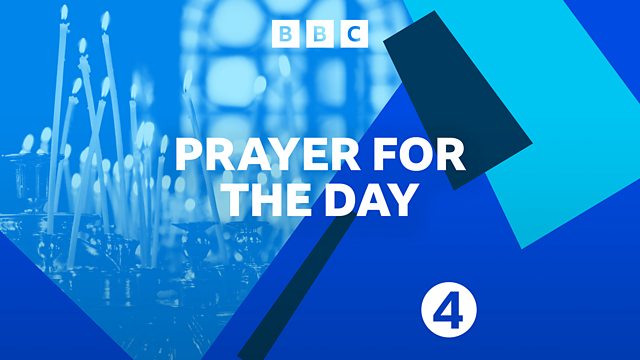
30/11/2015
Spiritual reflection and prayer to start the day with the Rev Duncan MacLaren.
Last on
Script
Good morning.
Today is the feast of Scotland's patron, St Andrew. His diagonal cross will be flown with pride from flagpoles across Scotland.
In some ways St Andrew is a curious choice for Scotland's patron saint. We might have expected a more home-grown saint – say, Aidan or Columba. But as it turned out, it was a distant Galilean fisherman who came to be chosen. It helped that he was Jesus' first disciple; it also helped that his relics were brought to Fife, making St Andrews a top pilgrim destination in medieval Europe.
From St Andrew came Scotland's flag, the St Andrew's cross, or saltire. Tradition has it that the white cross set on a blue background represents a cloud formation seen over East Lothian. on the morning of a 9th century battle. The Pictish King Angus II took this to be an omen, so the story goes, and his warriors were roused to victory over the Angles.
Flags inspire feelings.
Sometimes these are harmless, like national pride, patriotism, or the joy of homecoming.
At other times the flag can provoke more sinister feelings, like the tribalism that spills over into violence at football matches, or the cold suspicion we sometimes pour on strangers.
Andrew provides an antidote. He reminds us to look outwards. Embedded in Scotland's national flag is an international meaning. Andrew was from western Asia, crucified on a Roman cross, in 1st century Greece. He preached from the Black Sea to Kiev, and as far north as Novgorod; so Andrew is also patron saint of Romania, Ukraine, and Russia.
On this feast day, I pray St Andrew will inspire us to look outward, beyond the boundaries of nation, race, religion, and family. May we learn to embrace the strangeness in the stranger, and find our hearts enlarged.
Amen
Broadcast
- Mon 30 Nov 2015 05:43���˿��� Radio 4

